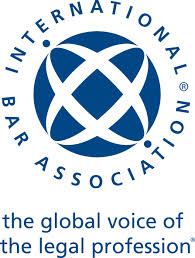 David W. Rivkin, the president of the International Bar Association (IBA), calls the Judicial Integrity Initiative (JII) is one of the most important initiatives as IBA President. Here is from his email inviting your participation in this initiative:
David W. Rivkin, the president of the International Bar Association (IBA), calls the Judicial Integrity Initiative (JII) is one of the most important initiatives as IBA President. Here is from his email inviting your participation in this initiative:
“The first part of the initiative focuses on a survey to understand how and when judicial corruption arises. From the results of the survey, we will be able to consider and to implement various activities using the strength of the IBA to combat judicial corruption.
To ensure the survey is successful, it is important that we receive a large number of responses from lawyers throughout the world. I know that you are busy, but because lawyers are inevitably involved whenever judicial corruption occurs, the IBA has a special responsibility to take steps to help eliminate it and your participation by completing this survey will help us meet that mission. Please complete this survey by no later than 23 October 2015. The survey can be completed in English, French, Spanish, Russian, Arabic, Mandarin, Bahasa Indonesian, Japanese and Korean. To start please click the relevantive option and follow the on screen instructions.
As described in more detail in the survey, your answers to the survey will be anonymous and confidential.
Background
The IBA is aware that most members of the judiciary operate with utmost integrity and are tireless in their efforts to fight corruption where it occurs; they encourage independence and impartiality in judicial decision-making throughout the world. The JII aims to contribute to these efforts by raising awareness of the causes and consequences of judicial corruption where it does exist, by promoting the highest standards of integrity among lawyers and judges, by considering how countries have worked effectively to eliminate judicial corruption and by proposing concrete steps that should be useful in preventing it.
The JII began earlier this year with meetings in London and Singapore of experts, including three Chief Justices and other judges from 8 countries (representing every continent) , practicing lawyers (including in-house counsel) and senior officials of NGOs active in the fight against corruption. Among other things, these expert meetings noted that no one had undertaken a comprehensive survey of precisely how judicial corruption occurs when it does. We decided that the IBA was in a unique position to undertake such a survey. Therefore, the IBA retained the Basel Institute for Governance to work with us in developing this survey to understand the types of interactions among judges, lawyers and other professionals working in and with the judiciary that may be lead to corruption. The survey results will be combined with a detailed literature review and in-country consultations in Mexico, The Philippines and Nigeria to develop a report on the manner in which judicial corruption can occur.
Using the findings in that report, the second part of the JII will involve consideration and implementation of activities designed to combat judicial corruption.
If you have any questions on the survey or its content, please feel free to contact Claudia Baez Camargo (claudia.baez-camargo@baselgovernance.org) or Rocio Paniagua (LPT@int-bar.org).
I thank you in advance for your assistance and look forward to reviewing the results of the survey.
Best regards,
David W. Rivkin
President, International Bar Association”
